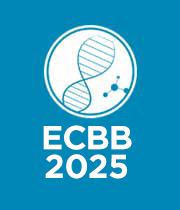Julia Sidorova, Centro de Investigación Biomédica En Red Enfermedades Hepáticas y Digestivas (CIBEREHD), Spain
Information Leakage threatens and questions the use of machine learning model in real-life clinical applications. In effect, information leakage is similar to vulgar overfitting, yet rather more subtle and even when detected much harder to remove. Some recent research indicates t [....] » Read More











Title : Eliminating implant infection: 30,000 nanotextured implants in humans with no failure
Thomas J Webster, Interstellar Therapeutics, United States
Implant infection is rising with the U.S. Centers for Disease Control predicting one person every three seconds will die from a bacteria infection by 2050. Nanomedicine is the use of nanomaterials to improve disease prevention, detection, and treatment which has resulted in hundr [....] » Read More
Title : Stem cell therapy: An affordable healthcare therapy for various diseases
Anant Marathe, Total Potential Cells (P) Ltd, India
At Total Potential Cells , anticipating the future is not enough; we believe in creating it. With traditional means of medicine falling short of the demands of the day, it is up to science and technology to provide solutions to the world's most pressing needs. Total Potential [....] » Read More
Title : Effect of maltogenic amylase, high-performance maltogenic amylase enzymes, and Bacillus coagulans probiotic bacteria on the shelf life and other properties of baked bread and tortilla
Assad Al Ammar, Specialty Enzymes and Probiotics, United States
The research project involves studying the effect of addition of Maltogenic enzyme to improve the shelf life and other desirable properties of baking goods (white bread and tortillas). Maltogenic enzyme breaks down long chains of amylopectin in starch to shorter chains that can h [....] » Read More
Title : Decoding pediatric appendicitis disease: Glycosylation insights via HPLC and mass spectrometry
Dalma Dojcsak, University of Miskolc, Hungary
N-glycosylation, an asparagine-linked glycosylation process, plays a vital role in cellular interactions, angiogenesis, immune response, and effector functions. Altered N-glycosylation impacts tumor growth and both acute and chronic inflammatory processes. IgG, the second most ab [....] » Read More
Title : Investigation and optimization of DNA isolation efficiency using Ferrite-based magnetic nanoparticles
Timea Gerzsenyi, University of Miskolc, Hungary
DNA isolation is a crucial step in many molecular biological applications for diagnostic and research purposes. However, traditional extraction requires toxic reagents and commercially available kits are expensive, this leading to the recently wide-spread method, the magnetic nan [....] » Read More
Title : Aluminium mediated expression of dehydration stress protein and ability of Al-acclimatized immobilized Nostoc muscorum: A strategy to combat abiotic stress and its potential as a biofertilizer
Alvina Farooqui, Integral University, India
In the present study engineered cyanobacteria based biofertilizer using the concept of acclimatization and immobilization has been for the very first time introduced and attempted. The cyanobacterium Nostoc muscorum (N. muscorum) was well acclimatized to Al metal by initially sub [....] » Read More
Title : Tissue culture techniques for enhancing cashew production: A biotechnological approach to sustainable agriculture
Benedicte Sophie Adjoua Akakpo, University of Abomey-Calavi, Benin
Cashew (Anacardium occidentale L.) is a valuable crop with significant economic importance in the world. However, conventional propagation methods face challenges such as low germination rates, slow growth, and susceptibility to diseases, limiting the potential yield and qualit [....] » Read More
Title : Bioleaching of metals from cellphones batteries by a co-fungus medium in presence of carbon materials
Khashayar Partovi, ISQI, Iran (Islamic Republic of)
Today, the increased rate of electronic portable devices has led to an unprecedented amount of electronic waste. The mass production of the new generation of batteries, such as lithium-ion and lithium-ion polymer batteries used in the electronic devices releases a high volume of [....] » Read More
Title : Actinobacteria as eco-friendly biopesticides: A sustainable approach to pest management
Saba Siddiqui, Integral University, India
Actinobacteria, a phylogenetically and metabolically diverse group of Gram-positive bacteria, have garnered substantial attention for their potential applications in sustainable agriculture, particularly as biopesticides. These microorganisms are prolific producers of secon [....] » Read More
Title : Potential effect of anthropogenic noise exposure on the exploratory- and cognitive-related behaviors of the Caribbean hermit crab (Coenobita clypeatus)
Carla P Gonzalez Suarez, Universidad de Puerto Rico at Cayey, Puerto Rico
Recent studies have shown that anthropogenic noise pollution in coastlines has a negative impact on animals inhabiting these areas, potentially affecting their intraspecific communication, essential survival skills, physiology, and reproduction. This study investigates the effect [....] » Read More